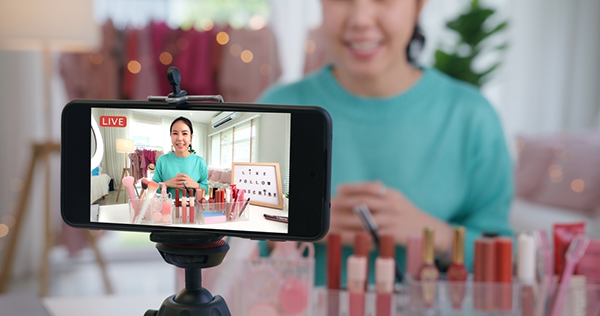 |
||||||||||||
|
||||||||||||
| Australia's Privacy Policy Takes Note of E.U.'s GDPR |
 |
| Another one, thank you! A major federal privacy law is underway in Australia, following in the footsteps of the E.U.'s comprehensive data privacy law — GDPR. The proposal is not an official government policy, but Attorney General, Mark Dreyfus, will release a review by his department, which expands the Privacy Act. It remits small businesses and restricts how political parties use data. This new proposal comes after significant data breaches in Australia in 2022. The government fined Telco Optus and Medibank millions of dollars after leaking consumer data, and the Australian government believed their legislation failed to protect consumers from the data breach. Updates included in the review:
Dreyfus emphasized that the massive data breaches in 2022 distressed millions of Australians because their personal information was susceptible to identity fraud and scams. "The Australian people rightly expect greater protections, transparency, and control over their personal information, and the release of this report begins the process of delivering on those expectations," said Dreyfus. "The government is seeking feedback on the 116 proposals in this report before deciding further steps to take." |
| The GDPR, the E.U.'s federal privacy legislation, was revolutionary for its privacy compliance and data protection regulations. The legislation also has global implications. Australia commits to creating a law based on GDPR's example, exhibiting the law's far-reaching influence. On the other hand, America struggles to pass federal privacy regulations because of its many detractors. Both big tech and state senators have loudly expressed their disappointment that federal privacy regs have yet to be enforced, yet no one can agree on how such a law should play out. Meanwhile, Australia's upcoming privacy policies garnered massive support across all aisles. January Sunita Bose, the managing director of Digital Industry Group Inc — their members include Google, Meta, Apple, TikTok, and Twitter — said she favored Australia aligning its laws with Europe's GDPR. She believes it "has a lot of strong elements, including consumer rights around data erasure." While it's redundant to say that in America, the ad tech industry is worried about privacy compliance, the next step is formalizing policies that protect consumers and allow the industry to evolve and thrive. Australia is on its way. Can America follow in its footsteps soon? Privacy for America called out President Biden after relaying his proposed additions to federal privacy regulations. While federal laws are at a stalemate, industry experts predict that state laws will drive compliance needs for the time being. |
| Google Expands Pre-Bunking in Europe |
| Last week, AP News reported that Google is expanding its pre-bunking initiative in Europe. In case you missed the earlier story, pre-bunking is a tactic meant to combat misinformation and disinformation that continues to proliferate the web. Misinformation continues to be a scourge plaguing civil discourse, but, as AP News reported, ending it has proven elusive. But researchers discovered that inoculation theory can help people detect when a story isn’t true and reduce their susceptibility to misinformation. Inoculation theory is the “process of supplying information to receivers before the communication process takes place in hopes that the information would make the receiver more resistant,” according to behavior theorist: William McGuire of the University of Kentucky. We can inoculate people from believing conspiracy theories by teaching them to recognize the content they consume online is deliberately misleading. Scaling this across the 5.3 billion Internet users worldwide is an enormous challenge, however, but researchers at ScienceAdvances came up with a scalable approach last summer. “We developed five short videos that inoculate people against manipulation techniques commonly used in misinformation: emotionally manipulative language, incoherence, false dichotomies, scapegoating, and ad hominem attacks,” researchers wrote. They then tested the videos on YouTube and found that they, “improve manipulation technique recognition, boost confidence in spotting these techniques, increase people’s ability to discern trustworthy from untrustworthy content, and improve the quality of their sharing decisions.” Moreover, the effects stand up to people across the entire political spectrum. Based on these findings, Google began rolling out the videos in Eastern Europe and the results were extremely effective, which is why the company is expanding its initiative into Germany. The videos will appear as advertisements on platforms like Facebook, YouTube, or TikTok in Germany. |
| Belief in conspiracy theories is hardly new; belief that the US Government is covering up the existence of UFOs goes back 50 years. But susceptibility to conspiracy theories has exploded in the age of social media. Consider: 35% of Americans and 68% of Republicans believe the 2016 election was stolen. Persistent conspiracy theories about the COVID vaccines hobbled our approach to combating the pandemic. The threat of misinformation is especially acute for news organizations, which are feeling a public erosion of trust and a rise in news avoidance. In June, Reuters Institute and University of Oxford released its annual Digital News Report, a survey that measures people’s news consumption habits and sentiment. This year the survey covered 46 markets, representing half of the world’s population. According to the survey, only four in ten respondents say they trust the news most of the time (in the US, just 26% say they do). Not surprisingly, consumption of news media has declined precipitously, from 63% in 2017 to 51% in 2022.” Worse, many consumers now say they actively avoid the news. The report also warns that a “significant proportion of younger and less educated people say they avoid news because it can be hard to follow or understand – suggesting that the news media could do much more to simplify language and better explain or contextualize complex stories.” By undermining trust in news organizations, misinformation, and disinformation put the press and our democracy at peril. If the inoculation videos continue to show positive results, we might be able to stem the tide of disinformation and rebuild trust in the press. |
| The Rise and Fall of Instagram's Live Shopping |
 |
| Instagram's live shopping feature has met a swift ending. Instagram introduced the feature in 2020 and hoped it would mimic the success of Asian markets. Although, live shopping was a short-lived odyssey as the social platform axed the feature due to its low performance rate. Starting March 16, the live shopping feature — which allowed users to tag products on live streams — will no longer be available on Instagram. During the pandemic, the U.S. market attempted to mimic the Asian market's success with this service. Pundits even referred to the live shopping feature as the "future of ecommerce" at the time. Yet, it did not survive the cultural shift after the pandemic in U.S. markets. At least 90% of users follow at least one business on IG, so the social media company is still working on shopping but will instead focus on building out their ads business as one of the main ways people find businesses and shop on the platform. |
| While Instagram's move to get rid of live shopping does not mark a dark turn for ecommerce, it does highlight that business tactics might not be cross-cultural, and therefore one size does not always fit all. While it is unclear if the platform's shift to ad-generated shopping is the right direction, the failure of live shopping highlights the need for the company to learn more about their consumers. With sweeping changes across digital media, retail, and ad tech, we've learned that the consumer is king. Understanding your audience's needs and desires is beneficial to the success of your business. At Pubforum Nashville, keynote Delu Jackson, CMO, ADT, said in his fireside chat, "brands need to align with customer's needs instead of forcing their brand vision to disrupt the consumers' way of life." But maybe, IG should be thinking about this differently. Some industry experts believe that the platform's move will cause consumers to go to other platforms for their online shopping needs. "Social media channels like Instagram are highly influential in the brand discovery process, especially among younger consumers (Gen Z) in particular," said Alyssa Trenkamp, VP of Brand Marketing and Communications, Uberall. "According to a recent study by Uberall on customer experience, 53% of consumers say they saw something on social media that influenced their decision to buy from a nearby business. Gen Z was the most influenced, with 70% saying content on social media influenced a purchase decision from a nearby business." |
| Article Title |
 |
| Just in case you missed it... The New York Times Stays Winning While most media companies are lamenting layoffs and suffering through an ad spend slowdown, The New York Times announced that they gained 1 million digital subscribers in 2022, which helped increase revenue by 11%. There's a lot that other digital media companies can learn from their success, including growing your first-party data and focusing on your customer's needs and experience. (Omeda) EU's AI Act Delayed The EU plans to regulate artificial intelligence faced another stumbling block after lawmakers failed to agree on a basic set of proposals. Of course, ChatGPT is at the center of these discussions. (REUTERS) How VICE Became the Poster Child for Facebook's Media Bubble "Facebook’s rapid consolidation of internet audiences and its subsequent unleashing of those audiences on digital publishers that optimized their content for its algorithm." Then came the fallout: FB pulled away from news and VC money in new media companies that relied on that traffic dried up. Some pubs, like Mic and Little Things, completely shut down. Now which media company do you think will become the poster child for this era? Simon Owens thinks it will be Vice. (Simon Owens Media Newsletter) For the First Time, Digital Video Viewing Will Eclipse TV in US US adults will spend more time this year watching digital video on platforms such as Netflix, TikTok, and YouTube than viewing traditional television, Insider Intelligence forecasts. (Yahoo! News) Android Privacy Sandbox Finally Here Google released the first beta for Privacy Sandbox on Android to a limited number of Android 13 devices, but the beta will expand over time. Google has promised that it will approach mobile privacy differently than Apple did, making it a more industry-inclusive process. (The Verge) |
| @{optoutfooterhtml}@ |










